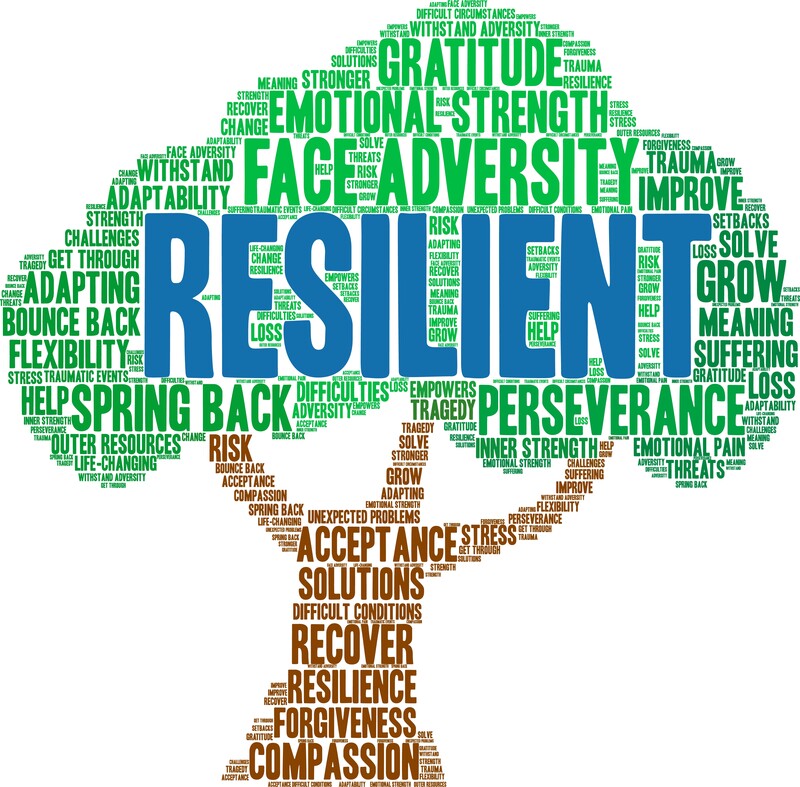Developing Resilience: A Path To Better Mental Health

Table of Contents
Understanding Resilience: What It Is and Why It Matters
Resilience, in the context of mental health, is not about avoiding hardship or remaining unaffected by challenges. Instead, it's the dynamic ability to adapt and bounce back from adversity. It's about possessing the mental fortitude to cope with stress, overcome obstacles, and learn from setbacks. It’s a skill, not an innate trait, meaning it can be developed and strengthened over time.
The benefits of cultivating resilience are substantial. It leads to better stress management, enabling you to navigate difficult situations with greater composure. Resilient individuals often exhibit improved coping mechanisms, allowing them to find solutions and persevere even when facing seemingly insurmountable obstacles. This, in turn, boosts self-esteem and contributes to a greater sense of overall well-being. Resilience is significantly different from simply "toughing it out," which can lead to burnout and mental health problems. Resilience involves active strategies to cope and grow.
Here's a breakdown of the key advantages of building psychological resilience:
- Reduced risk of mental health disorders: Resilience acts as a protective buffer against anxiety, depression, and other mental health issues.
- Faster recovery from setbacks: Resilient individuals tend to recover more quickly from setbacks, both big and small.
- Improved ability to adapt to change: Change is inevitable, and resilience helps you adapt to new circumstances with greater ease and flexibility.
- Enhanced problem-solving skills: Resilience fosters a proactive approach to problem-solving, enabling you to find creative solutions to challenges.
Building Blocks of Resilience: Practical Strategies for Strengthening Your Mental Fortitude
Developing resilience is a journey, not a destination. It involves cultivating a range of skills and habits that contribute to your overall mental strength. Here are key strategies to build your emotional resilience:
Cultivating a Positive Mindset
Your thoughts significantly impact your emotional state and resilience. Positive self-talk and reframing negative thoughts are powerful tools. Instead of dwelling on failures, focus on lessons learned and future opportunities. Gratitude practices and mindfulness help shift your focus to the positive aspects of your life. Techniques like Cognitive Behavioral Therapy (CBT) can be particularly helpful in identifying and challenging negative thought patterns.
- Practice daily affirmations: Start your day with positive statements about your abilities and worth.
- Keep a gratitude journal: Regularly write down things you are grateful for.
- Engage in mindfulness meditation: Mindfulness helps you focus on the present moment, reducing anxiety and improving emotional regulation.
Building Strong Social Connections
Human beings are social creatures. Strong social support networks play a vital role in navigating challenges. Building and maintaining meaningful relationships with family, friends, and community provides emotional buffering during difficult times. These connections offer a sense of belonging, reduce feelings of isolation, and provide practical and emotional assistance.
- Spend quality time with loved ones: Nurture your relationships through meaningful interactions.
- Join a social group or club: Connect with like-minded individuals who share your interests.
- Seek support from a therapist or counselor: Professional support can provide guidance and coping strategies.
Embracing Self-Care Practices
Prioritizing self-care is not selfish; it's essential for both mental and physical health. This involves making conscious choices to nourish your body and mind. Regular exercise, a balanced diet, sufficient sleep, and engaging in hobbies you enjoy are all vital components of self-care. Equally important is learning to set boundaries and saying "no" to avoid burnout.
- Prioritize regular physical activity: Exercise releases endorphins, boosting your mood and reducing stress.
- Maintain a balanced and nutritious diet: Fuel your body with wholesome foods to optimize your physical and mental energy.
- Ensure adequate sleep each night: Sleep deprivation negatively impacts mood, cognitive function, and resilience.
- Engage in activities that bring you joy and relaxation: Make time for hobbies and activities that help you unwind and de-stress.
Seeking Professional Help: When to Reach Out for Support
While building resilience is empowering, it's crucial to recognize that seeking professional help is a sign of strength, not weakness. If you're struggling with mental health challenges, don't hesitate to reach out to a mental health professional. Various professionals can offer support, including therapists, counselors, and psychiatrists. Support groups can also provide a safe and supportive environment to connect with others facing similar challenges.
Remember, addressing mental health concerns promptly can significantly improve your well-being and overall quality of life. Overcoming the stigma surrounding mental health is crucial; seeking help is a brave and proactive step towards a healthier and happier you.
- Therapists: Provide therapy to help you address underlying issues and develop coping strategies.
- Counselors: Offer guidance and support for various life challenges.
- Psychiatrists: Can diagnose and treat mental health disorders, often prescribing medication.
- Support groups: Provide peer support and a sense of community.
Embark on Your Journey to Greater Resilience
Developing resilience is a journey that requires commitment and effort. By cultivating a positive mindset, building strong social connections, and prioritizing self-care, you can significantly enhance your mental strength and navigate life's challenges with greater ease. Remember, resilience is not about avoiding difficulties but about developing the skills to overcome them and emerge stronger. Invest in your mental well-being; it’s an investment in your overall quality of life. Develop your resilience today. Strengthen your mental fortitude and build a more fulfilling life. Don't hesitate to seek professional support if needed – it's a vital step towards building lasting resilience and achieving optimal mental health.

Featured Posts
-
 A Comprehensive Review Of Trump Era Aerospace Transactions Details And Omissions
May 21, 2025
A Comprehensive Review Of Trump Era Aerospace Transactions Details And Omissions
May 21, 2025 -
 Gumballs Upcoming Episodes Expect The Unexpected
May 21, 2025
Gumballs Upcoming Episodes Expect The Unexpected
May 21, 2025 -
 Exploring Bangladesh Your Gateway To Information On Bangladeshinfo Com
May 21, 2025
Exploring Bangladesh Your Gateway To Information On Bangladeshinfo Com
May 21, 2025 -
 Synaylia Kathigiton Dimotikoy Odeioy Rodoy Dimokratiki Programma And Eisitiria
May 21, 2025
Synaylia Kathigiton Dimotikoy Odeioy Rodoy Dimokratiki Programma And Eisitiria
May 21, 2025 -
 Innovatief Digitaal Platform Transferz Ontvangt Financiering Van Abn Amro
May 21, 2025
Innovatief Digitaal Platform Transferz Ontvangt Financiering Van Abn Amro
May 21, 2025
Latest Posts
-
 8 6 Thriller Tigers Prove Doubters Wrong Against Rockies
May 22, 2025
8 6 Thriller Tigers Prove Doubters Wrong Against Rockies
May 22, 2025 -
 Delayed Ruling Ex Tory Councillors Wifes Racial Hatred Tweet Appeal
May 22, 2025
Delayed Ruling Ex Tory Councillors Wifes Racial Hatred Tweet Appeal
May 22, 2025 -
 Rockies Vs Tigers 8 6 Upset Shows Promise For Detroit
May 22, 2025
Rockies Vs Tigers 8 6 Upset Shows Promise For Detroit
May 22, 2025 -
 Ex Tory Councillors Wife Faces Delay In Racial Hatred Tweet Appeal
May 22, 2025
Ex Tory Councillors Wife Faces Delay In Racial Hatred Tweet Appeal
May 22, 2025 -
 Lucy Connollys Appeal Against Racial Hatred Sentence Denied
May 22, 2025
Lucy Connollys Appeal Against Racial Hatred Sentence Denied
May 22, 2025
